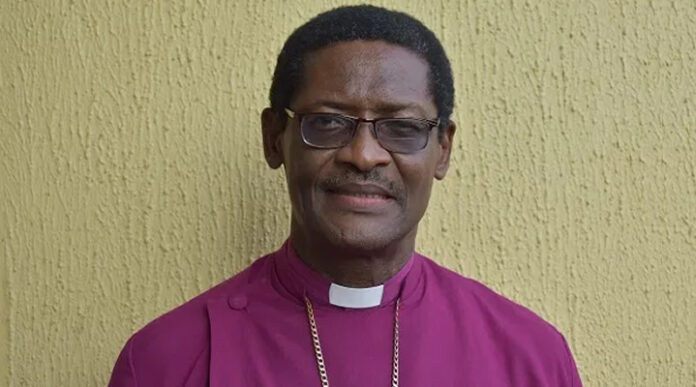The Anglican Communion just got another seismic shake-up! In a move that’s as bold as it is decisive, the Church of Nigeria (Anglican Communion) has officially slammed the door shut on its relationship with the Church in Wales. The reason? The recent election of Bishop Cherry Vann, an openly lesbian cleric, to the esteemed position of Archbishop of Wales. This isn’t just a polite disagreement; it’s a full-blown theological divorce, announced with conviction and a clear message for the global Anglican family.
A Line in the Sand: ‘We Do Not Recognise’
The decision, made public through an official statement dated August 3, 2025, and signed by the Primate, Most Rev. Henry C. Ndukuba, leaves absolutely no room for ambiguity. “We do not recognise the so-called Archbishop of Wales and cannot share communion with a church that has departed from the teachings of the Bible,” the statement declared. Talk about drawing a line in the sand!
For the Church of Nigeria, this isn’t merely a matter of differing interpretations; it’s a fundamental breach of core biblical teaching on sexuality and leadership within the revered Anglican tradition. Primate Ndukuba didn’t mince words, asserting that “The election of a practising lesbian as an archbishop is not only a departure from the faith once delivered to the saints, but a defiance of God’s order.” Strong language, indeed, reflecting a deep-seated conviction that this move represents a significant deviation from what they consider orthodox Christian doctrine.
Impaired Communion: A Formal Severance
To underscore the gravity of their decision, the Church of Nigeria has formally placed the Church in Wales in a “state of impaired communion.” Now, what does that mean in church-speak? It’s essentially a spiritual timeout – no official fellowship, no joint worship services, and certainly no ministry partnerships will continue between the two provinces. “In line with our commitment to the authority of Scripture and the historic Christian faith, we declare a state of impaired communion with the Church in Wales,” the statement elaborated, highlighting their allegiance to what they perceive as foundational Christian tenets.
This isn’t the first time the Church of Nigeria has taken such a drastic step. They’ve walked this path before, notably with their past withdrawal from the U.S. Episcopal Church and the Anglican Church of Canada. These earlier separations stemmed from similar doctrinal disagreements, particularly concerning the ordination of LGBTQ+ clergy and the blessing of same-sex unions. It’s a pattern, a consistent stand against what they view as “unbiblical innovations” creeping into parts of the global Anglican Communion, particularly in the Western world.
Primate Ndukuba minced no words, lamenting that “The Church in Wales has chosen to walk in the path of spiritual ruin.” He warned that such choices “undermine the witness and mission of the Church,” suggesting that embracing these practices compromises the Church’s ability to effectively spread its message and fulfill its divine purpose.
GAFCON and the Global Orthodox Alliance
In this era of shifting theological sands, the Church of Nigeria isn’t standing alone. Primate Ndukuba emphatically reaffirmed their allegiance to GAFCON (Global Anglican Future Conference) and other orthodox Anglican provinces around the world. GAFCON is a powerful coalition of conservative Anglican churches, predominantly from the Global South, that formed precisely to uphold traditional biblical teachings in the face of what they see as liberalizing trends within the broader Anglican Communion.
“We stand firm in our call to uphold biblical faith, and we will not compromise with churches that embrace unbiblical innovations,” the statement declared, signaling a continued commitment to this global network of like-minded provinces. This alliance provides a strong support system for churches that feel increasingly alienated by progressive shifts in Western Anglicanism.
The Church of Nigeria concluded its powerful statement with a clear directive to its members: avoid any ministry cooperation or liturgical engagement with the Church in Wales or its representatives. This is a call for a complete spiritual disengagement, ensuring that their members are not perceived as endorsing practices that the Church of Nigeria vehemently opposes.
This latest development is more than just an internal church squabble; it’s a significant moment in the ongoing global debate about faith, tradition, and evolving societal norms. It underscores the deep and often irreconcilable differences that continue to challenge the unity of the worldwide Anglican Communion, forcing provinces to make difficult choices about where their allegiances truly lie – with institutional unity or with deeply held theological convictions. The reverberations of this decision will undoubtedly be felt across the Anglican world for years to come.


